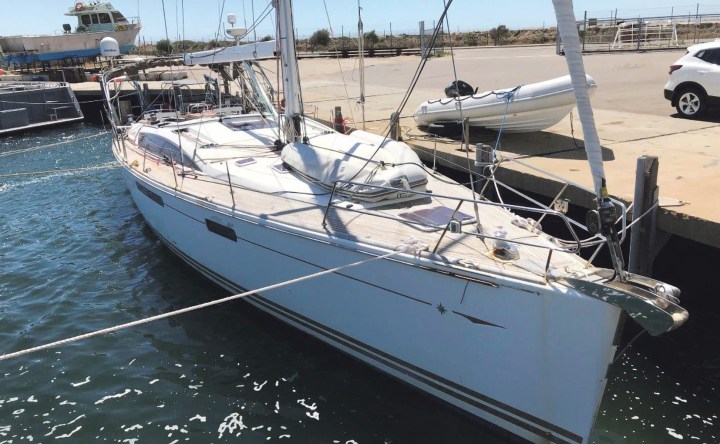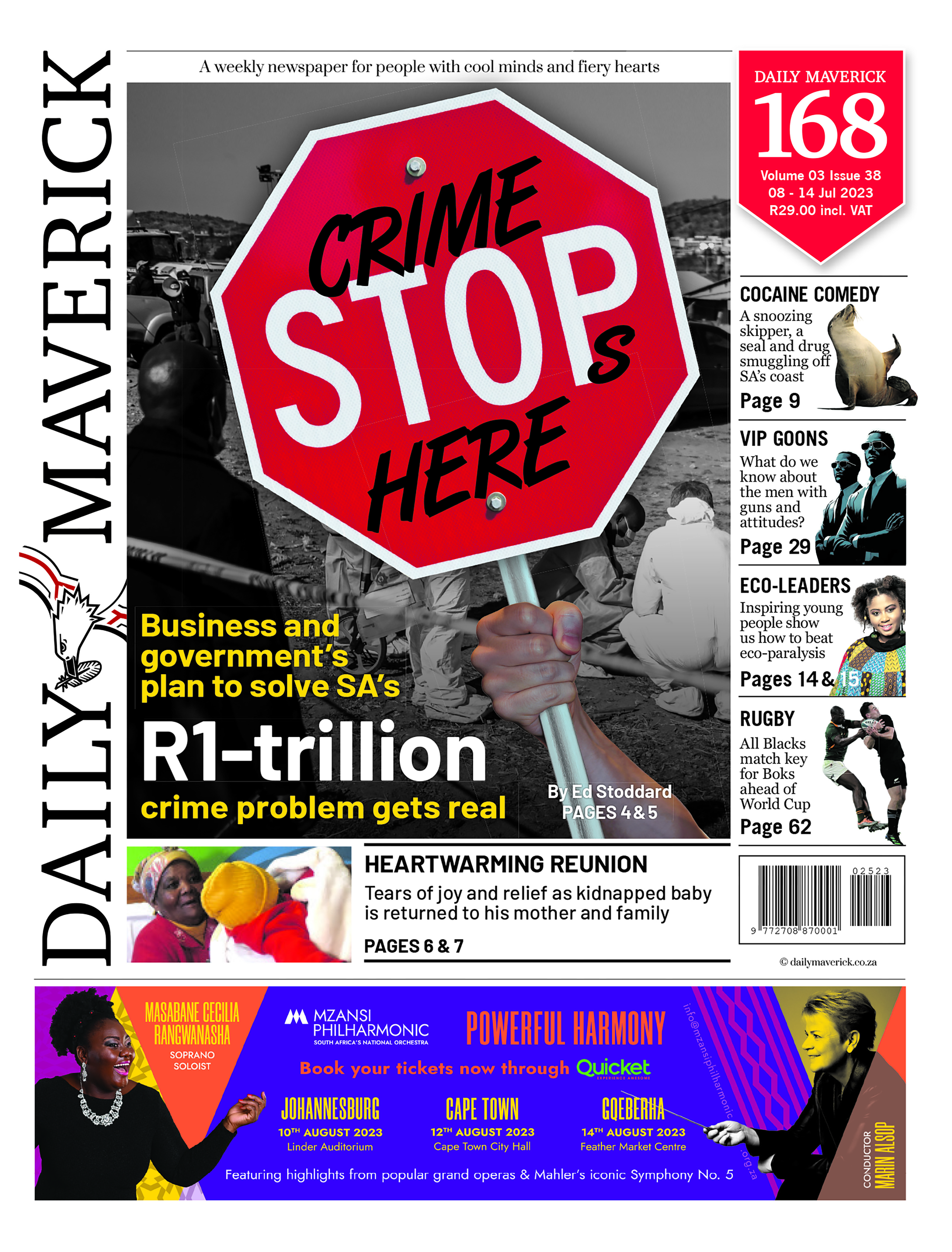CRIMINAL FARCE
The curious case of the snoozing skipper, an angry seal and drug smuggling off SA’s coast

Drug traffickers favour Durban harbour, but they also do deals out at sea, off the coastline. A case in Australia shows how cocaine was moved from a boat to a yacht off the KZN coast.
The high seas along South Africa’s coastline hold secrets about global drug trafficking. Police often intercept consignments of illicit narcotics on land, especially at the country’s harbours, and this is indicative of what is happening on the ocean waves.
A recent court judgment in Australia, involving a crime syndicate that included a French skipper and traffickers from the UK and the US, showed how drug smugglers used a yacht to transport cocaine, ecstasy and methamphetamine (tik) that they had picked up from a vessel along the KwaZulu-Natal coast.
Daily Maverick has previously reported on how global drug traffickers use the Port of Durban in their operations.
Mother ships to yachts
In March this year, the UN Office on Drugs and Crime released its Global Report on Cocaine 2023, which flagged South Africa and said narco-traffickers prefer using maritime routes to pump cocaine into this country.
The report added that trafficking groups had access to “a growing number of vessels”, including yachts.
“To avoid law enforcement at seaports, traffickers frequently offload cocaine from the mother ship before reaching land,” it said.
“Ship-to-ship transfers occur at rendezvous points using small and medium-sized vessels like speedboats and fishing boats.”
Also read in Daily Maverick: No business like blow business: Encrypted devices unravel knots of worldwide organised crime
Vessels have been intercepted in South Africa during drug crackdowns – in June 2021, cocaine worth R400-million was discovered hidden in a ski boat being towed by a bakkie in Pretoria.
In South Africa’s biggest drug bust, in 2010, cocaine worth about R2-billion at the time was discovered on a fishing vessel, the Toledo, in Knysna, on the Western Cape coast. It was alleged a passing ship had earlier loaded the cocaine onto the Toledo.
Madagascar to Richards Bay
In the Australian case that leads back to South Africa, a yacht named the Zero was the key in trafficking operations.
The case involved Antoine Dicenta, of France, who recently failed in an application to change his previous guilty plea and set aside his conviction in relation to drug importation charges. Dicenta was handed a 26-year jail term.
In that case, cocaine, ecstasy and methamphetamine, reportedly worth up to A$184-million (about R2.3-billion), was seized.
South Africa cropped up in the judgment against Dicenta, handed down by the Supreme Court of Western Australia in April this year and made publicly available online in May.
According to the judgment, on 20 July 2019 Dicenta was skippering the Zero. Also on board was Graham Palmer, of the UK, who was later sentenced to 22 years in jail for his involvement.
“The Zero sailed from Madagascar to Richards Bay on the east coast of South Africa, arriving on 27 July 2019,” the judgment read.
“It met with another boat and large quantities of cocaine, methamphetamine and MDMA [ecstasy] were transferred from the boat to the yacht. There was evidence that a second boat may have been in the vicinity at the time the drugs were transferred.”
It was not made clear how far offshore the transfer happened.
Accidental incriminating evidence
A cellphone partially recorded the drugs transfer. The recording was reportedly made by accident by one of the two men on the yacht.
“The recording captured Mr Palmer saying, after the drugs had been taken on board, ‘Fucking more than a tonne there’, and Mr Dicenta responding ‘Oh, sure, sure, it’s more than a tonne’.”
According to the judgment, the Zero left Richards Bay and travelled to the west coast of Australia, eventually arriving at the northernmost group of islands there, the Abrolhos Islands, on 29 August 2019. It then headed south, arriving at the Pelsaert group of islands.
“The yacht sailed around that group until it ran aground on a reef near Stick Island on 2 September 2019,” the judgment said.
“Mr Dicenta told police following his arrest that he had fallen asleep while steering the yacht.”
After the Zero ran aground, Dicenta and Palmer jumped ship and made their way to Burton Island, arriving there on the afternoon of 2 September 2019.
They hid the drugs on the island.
“Mr Dicenta and Mr Palmer remained on Burton Island but were spotted on 3 September 2019 by the crew of a passing vessel,” the judgment said. “The police were alerted.”
Their fate was sealed
According to the Australian Broadcasting Corporation, the duo tried to evade police officers who landed on the island, but a seal got in their way.
It quoted Damien Healy, the vice-commander of a local volunteer marine rescue service, as saying: “They woke it up and it jumped with its big chest out and bellowed at them.
“The guys basically had the choice of going through the seal or getting arrested and they ended up choosing to get arrested.”
Their drug stash was found and confiscated.
According to the judgment against Dicenta, had he and Palmer not been arrested the drugs would have been transferred from the Zero to a powerboat at sea.
From there, the consignment would have been taken to Dongara, a harbour on Australia’s west coast.
Loose ends in SA
At the time, Detective Superintendent Kate Ferry, national coordinator of the Australian Federal Police’s Criminal Assets Confiscation Taskforce, said: “Our message to organised crime groups in Australia and abroad is clear – the [police] and its partners will continue to target and investigate your illegal operations, while prosecuting you with the full force of the law.”
A total of five men were jailed in the Zero yacht drug case.
The judgment against Dicenta did not include any details about who in South Africa might have been involved in getting the drugs to him and Palmer.
Daily Maverick has previously reported on drug conduits between South Africa and Australia.
It was reported that Australian syndicates had tapped into South African ones, using local drug networks to sell illicit substances.
Pointsmen in this country were also used to ensure consignments were delivered to Australia. DM
This article first appeared in Daily Maverick’s weekly newspaper DM168, which is available countrywide for R29.






















Give that seal a medal and free fish for life!!!!ha,ha,ha
I suggest that you look up the meaning of “the high seas”, Caryn.
If all this stuff was legalised, the profit motive would be removed and so would the crime.
Addictive drugs sadly have a market and until this no longer exists there will be people who trade in them. Government should nationalise the trade in addictive substances.
Good choice, you don’t want to get on the wrong side of a seal!